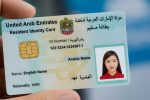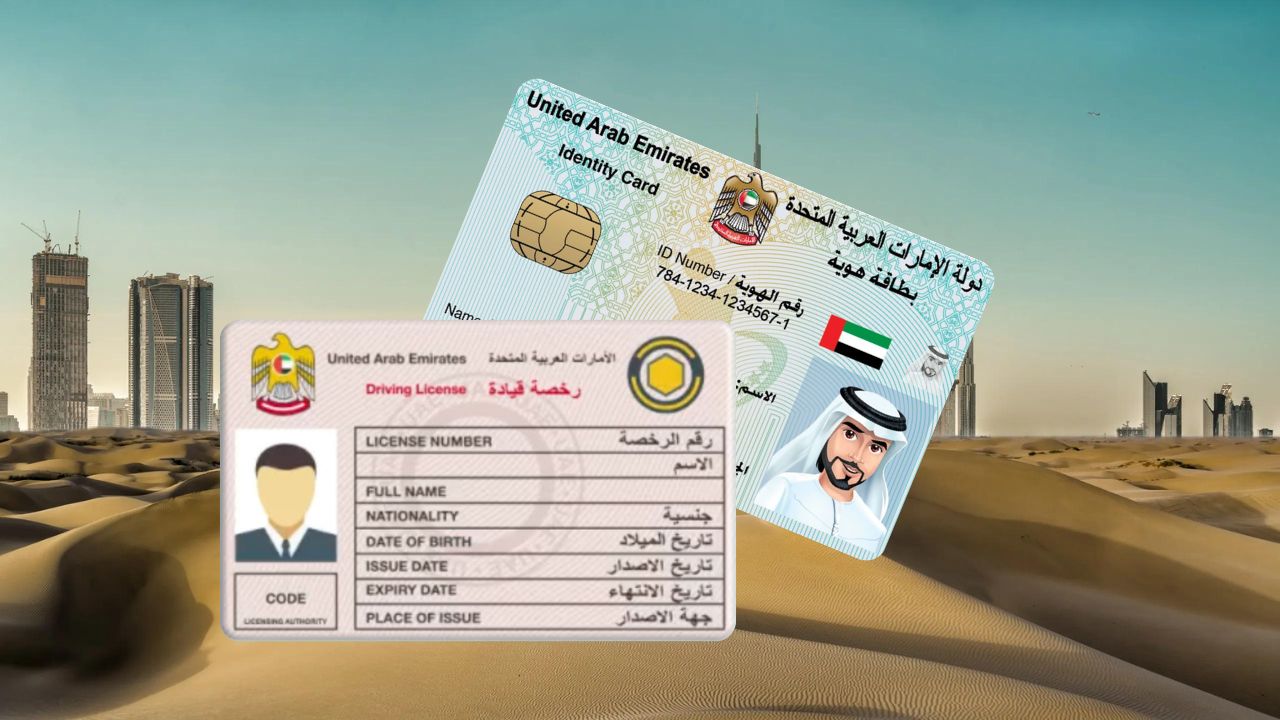Emirates ID Biometric Tech Uses Your Face as ID – What you need to know? The United Arab Emirates (UAE) is once again leading the way in digital transformation with its bold move to replace physical Emirates ID cards with a cutting-edge biometric system. This move represents a monumental shift in how identity verification will be conducted across the UAE, with facial recognition technology at the heart of the initiative.
- What Is the UAE Emirates ID Biometric System?
- Emirates ID Facial Recognition System
- Who Is Behind This Innovative Project?
- How Was the Biometric System Announced?
- Why Is the UAE Phasing Out Physical Emirates ID Cards?
- How Will the Emirates ID Biometric System Work for Residents?
- What Does This Mean for South Africans Living in the UAE?
- Potential Concerns and Public Trust
- Timeline for Full Implementation
- Conclusion
As a growing number of countries explore biometric security, South Africans and global observers alike can learn from the UAE’s innovative approach. Here’s a deep dive into what this new identity system means, who is leading it, and how it is expected to change everyday life in the Emirates.
What Is the UAE Emirates ID Biometric System?
The Emirates ID biometric system is a government-led innovation designed to replace the need for residents to carry a physical identification card. Instead of traditional ID documents, residents’ facial features will be used as their primary form of identification. This system will rely on advanced facial recognition technology to authenticate individuals across various government and private sectors.
The transition aims to increase security, reduce fraud, and improve efficiency in public and private services. It is expected that within a year, this system will be fully integrated across major platforms and services in the UAE.
Emirates ID Facial Recognition System
Here are some notable features of this ambitious biometric project:
- No Need for Physical ID Cards: Residents will no longer need to carry or present their Emirates ID card for identification purposes. Facial recognition will serve as a digital substitute.
- Seamless Identity Verification: From airport immigration gates to banking services, your face becomes your ID.
- Advanced Security: The biometric system enhances data protection by using encrypted facial patterns that are difficult to duplicate or manipulate.
- Faster Processing: Whether it’s accessing government services or conducting private transactions, the process becomes quicker and more efficient.
Who Is Behind This Innovative Project?
The development and rollout of the Emirates ID biometric initiative is being led by the Federal Authority for Identity, Citizenship, Customs and Port Security (ICP). In collaboration with strategic technology partners, ICP aims to future-proof identity management in the UAE.
These partners are contributing technical expertise, infrastructure development, and support to integrate facial recognition technology into existing systems, making it easier for organisations to adopt the new method of identification.
How Was the Biometric System Announced?
The initiative was publicly confirmed through an official response issued to the Federal National Council (FNC). Specifically, it was in reply to a question raised by Dr. Adnan Hamad Al Hammadi, a respected member of the Council. Dr. Al Hammadi had queried the implementation and promotion of electronic identity solutions as a means of boosting service efficiency in the UAE.
This form of legislative engagement underscores the importance of digital transformation in national planning and service delivery.
Why Is the UAE Phasing Out Physical Emirates ID Cards?
The UAE is known for embracing futuristic solutions that enhance user experience while increasing operational security. The decision to transition from physical Emirates ID cards to a biometric system aligns with several national priorities:
- Reducing Administrative Bottlenecks: Physical cards can be lost, stolen, or forged. A digital system reduces these vulnerabilities.
- Encouraging Paperless Governance: This move supports the UAE’s vision for a smart government that reduces reliance on physical documents.
- Boosting Public Trust: Facial recognition ensures that the person using an identity is genuinely the right individual, thus increasing confidence in public services.
- Aligning with Global Standards: Many countries are exploring biometric identity systems, and the UAE is positioning itself as a global leader in this domain.
How Will the Emirates ID Biometric System Work for Residents?
For residents of the UAE, the adoption of this system will be gradual but inevitable. Once fully implemented, you will be able to:
- Access government services through face scans instead of card swipes or PIN inputs.
- Authenticate bank transactions without needing a physical ID or signature.
- Enter secured buildings or areas using facial recognition checkpoints.
- Check-in at airports using facial scans for faster immigration processing.
In short, this biometric system is set to become a one-stop solution for identity verification.
What Does This Mean for South Africans Living in the UAE?
For South African expatriates living in the UAE, this development brings several benefits and considerations:
- No more worry about misplacing your Emirates ID card.
- Easier access to healthcare, banking, and governmental platforms.
- Enhanced security for your personal data and identity.
However, it’s crucial to stay informed about the registration process for the biometric system, including how and where to update your data when required by the ICP.
Potential Concerns and Public Trust
While the project is ambitious and promising, some privacy advocates have expressed concerns regarding data usage, consent, and surveillance. The UAE government has assured residents that the biometric data will be securely encrypted and used strictly for identity verification purposes.
The ICP and its partners are reportedly taking necessary measures to ensure compliance with global data privacy laws and to build trust among the public.
Timeline for Full Implementation
According to initial projections, the biometric identity verification system is expected to be fully operational within the next 12 months. Key phases include:
| Phase | Implementation Focus |
|---|---|
| Pilot Testing | Select government departments and airports |
| Partial Rollout | Major banks, hospitals, and service centres |
| Full Integration | All public and private institutions nationwide |
Residents will receive official notifications from the ICP detailing when and how to update their biometric profiles.
Conclusion
The transition to a facial recognition-based Emirates ID system marks a significant milestone in the UAE’s journey towards a digital-first society. For residents, including the South African community in the UAE, this change promises greater convenience, security, and efficiency.









